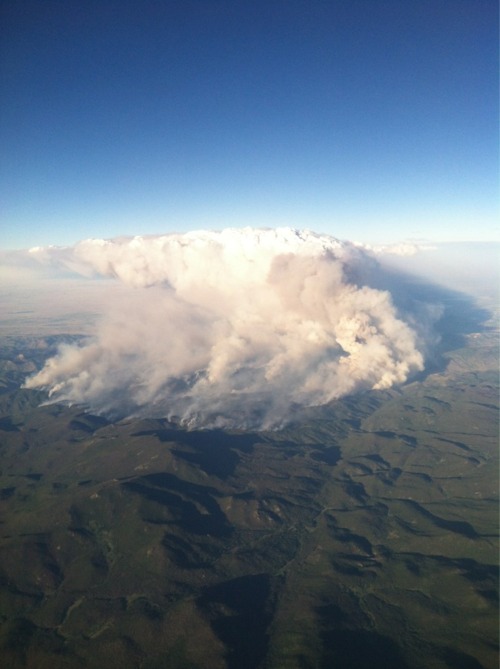It is on 70% private land, and 30% federally-owned forest land. Today it is moving west toward the forest land, where the timber is denser and there are fewer homes. Once it gets there, the fire will be allowed to burn more freely, with the emphasis on putting it out, not defending structures.

More than 100 structures have burned in that fire, but they don't know how many were houses. A lot. It started Saturday and quickly spread to 37,000 acres, with no control. It has been windy, and they shift, so the fire comes back around and re-burns what it missed the first time. There was another fire in that area a couple of weeks ago (and we got an all-day rain that really helped put it out), and this new fire is burning through that. A person can't help but feel like once we get the one big fire out of the way, we're not going to get any more because how much crap can people take, but of course misfortune can pile onto misfortune.
I'm still listening to the scanner, and now they are talking about looters. Some of the evacuated people sneak back in on foot to check their houses, but I'm sure there are looters, too. Most of the people I'm listening to are with the local volunteer fire department and live around there and know each other. They'll say: "I just went by your house, and it's fine." I suppose if it wasn't fine, once they know someone's been told, they don't mention it.
There is one hispanic guy named Pedro, and we enjoy hearing his accent. There is also a guy from Australia. They talk about going to various houses to feed the animals, chickens, for example. The large animals were to be taken to the county fairgrounds, and the humane society is taking anything 'goats on down' in size.
One woman evacuated 130 llamas and various other animals, including 2 barn cats, and one of the llamas had a baby on fire day, so the news reports like to show that. People are donating their time and supplies including hay to help care for the animals. But not all animals were gotten out. Chickens would be hard to round up and get out of there.
As the firefighters drive around in the area, they are looking for animals left behind and stop to feed and water them. As the days stretch out, residents are allowed back in the get their horses and so on. Last night after dark, the there was a request for them to pick up a horse. Glow sticks were used to mark the driveway where the horse was, and a glow stick was attached to the horse. But they didn't have a trailer for it (should be provided by the horse owner). The choices were to let the horse out so it could run ahead of the fire on its own, or leave it overnight and give the owner time to try to get it today.
One rancher up there had 150 cattle, and when he had to go, he cut his fences so they could run free, but now, as time passes, he plans to go back and round them up.
The fire has gone into an area that was burned last year, and 20 of the homeowners in there refused to evacuate until they see flames, and five of them said that even then they are not leaving. I wonder how close the fire really is, and what they plan to do when they see the flames. Their experience with these fires makes me wonder what it is that they know that the rest of us don't know about how these things work. I would be afraid that I'd get trapped in there by the approaching flames. Our situation is a little different because we do have the river with the pump in it. We can definitely put sprinklers on the roof, and have plenty of long hoses.
We still don't have any smoke up here, but we could have our own fire at any time in this hot, dry weather. What I need to do is start my own evacuation plans: lists of things to bring, putting things in the garage all ready to put in the car because we might have only a few minutes notice in our own emergency. We have discussed the fact that we have three vehicles and only two drivers. One group's first notice that the fire was coming came at 11 o'clock at night.


